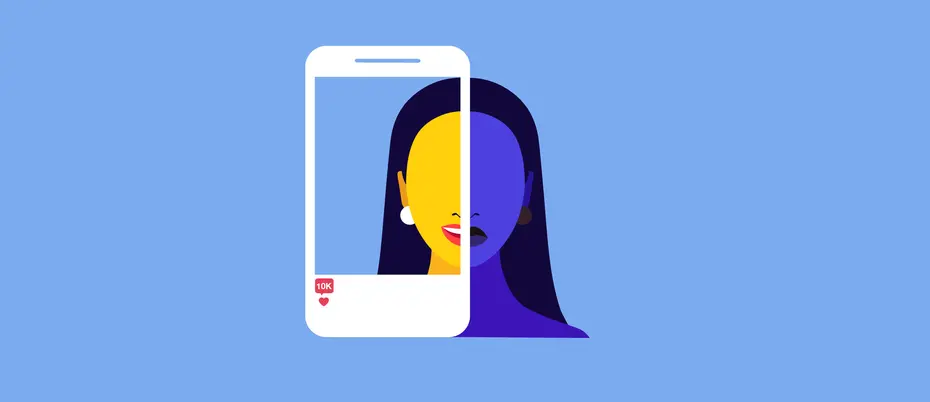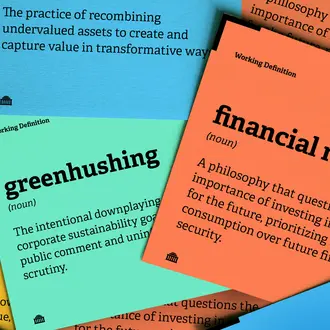Social Media
Study: Social media use linked to decline in mental health
Researchers found a significant link between the presence of Facebook and increases in anxiety and depression among college students.
Mark Zuckerberg launched TheFacebook at Harvard University in February 2004. Days later, 650 students had made accounts. Today, there are roughly two billion daily active users.
Concurrent with Facebook’s meteoric expansion has been growing concern over the mental well-being of adolescents and young adults. According to data from the Centers for Disease Control, the suicide rate among 10- to 24-year-olds was stable from 2000 to 2007; it then increased 57% between 2007 and 2017.
Given these parallel trends, it’s important to understand the relationship between mental health and technology use, especially how youths use social media. But there have been few causal studies.
“There may be hundreds of papers that present correlations between social media and well-being, and many of them are great and highly informative, but we still know little about which way the effect runs,” said an assistant professor at MIT Sloan. People who use more social media may become more depressed, or, conversely, people who are more depressed may be more active on social media. “There is a lack of true causal evidence.”
Makarin and colleagues Luca Braghieri of Bocconi University and Ro’ee Levy of Tel Aviv University aim to fill this gap with a new paper, forthcoming in the American Economic Review. The researchers paired the staggered rollout of Facebook in colleges with 430,000 responses from the National College Health Assessment, a semi-annual survey of mental health and well-being on campuses across the U.S. (The survey looks at other dimensions of student health, as well, like substance use and exercise habits.) The researchers found a significant link between the presence of Facebook and a deterioration in mental health among college students.
Facebook access leads to more anxiety and depression
When Facebook began, access was restricted to people with a Harvard email address. Less than a month later, the website had expanded to Columbia, Stanford, and Yale. This progressive opening continued until September of 2006, when anybody over 13 years old was able to create an account.
College-wide Facebook access led to a 7% increase in severe depression among students, researchers found.
“We were able to use the fact that Facebook rolled out at different universities at different times, together with the fact that we have this huge survey already conducted at universities, to understand the causal impact of Facebook on student mental health,” Makarin said.
Most broadly, the researchers found a sizable increase in the number of students who reported mental distress at some time in the preceding year. College-wide access to Facebook led to an increase in severe depression by 7% and anxiety disorder by 20%. Beyond these results, a greater percentage of the most susceptible students also treated symptoms with either psychotherapy or antidepressants. In total, the negative effect of Facebook on mental health appeared to be roughly 20% the magnitude of what is experienced by those who lose their job.
The researchers posit that social comparison with peers is behind those results, and it is an effect that appears to grow stronger as people are exposed to Facebook for greater lengths. “The effects seem to increase with time,” Makarin said. “If, in late fall 2004, a freshman at Harvard had Facebook available to him for one semester and a sophomore for two semesters, it appears as though the effect is stronger with the sophomore, who had greater exposure.”
Trying to solve a “truly bad” situation
Given Makarin and his coauthors are looking at Facebook in its earliest form, they’ve faced questions about the salience of these findings. “People wonder how much this tells us about Facebook, or Instagram, right now,” Makarin said. “And that’s a fair criticism — but there are a few things in our defense.”
Related Articles
First, to the degree that social comparison drives these results, Makarin notes there is reason to believe the effect has not diminished; looking at and interpreting the curated posts of others remains a fundamental operating principle on Facebook and other, similar forms of social media. (Makarin also suspects that the ubiquity of smartphones could make this channel of influence stronger.)
Second, even if the study pertains to a particular period, the paucity of experimental data on how social media affects its users means any contribution should be considered worthwhile. “Whatever causal evidence we are able to provide is, by its nature, useful,” he said.
Makarin and his coauthors also take care to delimit the scope of their study. The mental health of Facebook’s users is only one dimension on which to measure the overall effect of social media. People may derive benefits, like connection with old friends or access to likeminded groups or good deals on products, that, in total, outweigh the costs.
But even if this is the case, Makarin believes that social media companies and policymakers should still work to alleviate the potentially harmful effects on mental well-being. As of 2021, 4.5 billion people — more than half of the global population — had a social media account.
“When I came to this work, I knew that mental health was an important issue, but to be honest, I thought of it as just one more outcome to study in our social media agenda,” he said. “When I started to really look into the trends of deteriorating mental health among the young adults, though, I came to realize how truly bad the situation is, and that stuck with me. Any insights that this paper, or others, can offer into what’s behind this trend will be very valuable to society.”
Read next: 5 social media trends experts are watching




